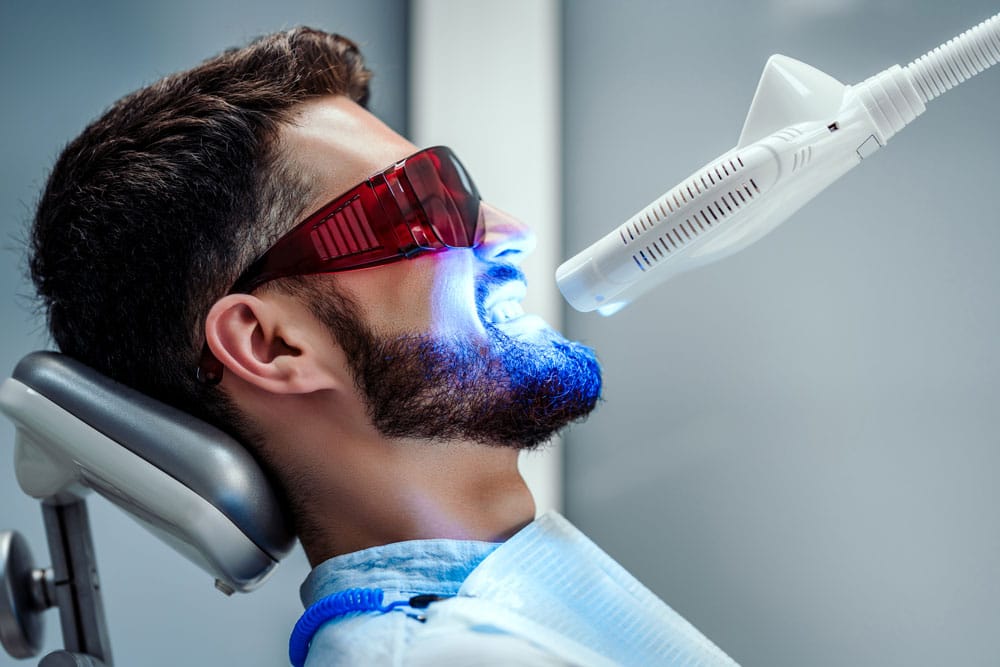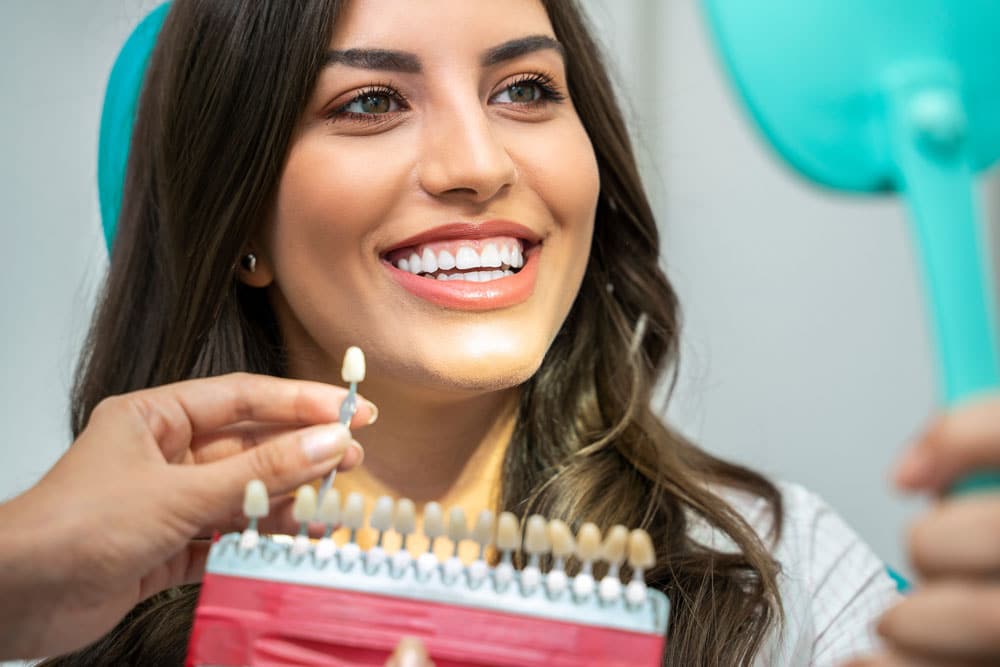
Teeth Whitening
We all know the best way to keep your teeth bright & white is to brush your teeth twice a day, floss at least once a day & see your dentist every six months for your regular cleaning appointments. Unfortunately, try as you may, your pearly whites may not always be so pearly & white.
While age & genetics do factor into dark or yellow teeth, our health choices make a significant impact. Generally speaking, your diet & oral hygiene are the most important determiners of your tooth colour. Beverages like tea, coffee & red wine tend to stain teeth the most. In addition to all of the other health problems it causes, tobacco is one of the biggest reasons for stained &yellow, brown or even gray teeth.
What Is A Teeth Cleaning?
When it comes to improving the appearance of your smile, teeth whitening is one of the easiest ways to make a significant difference. Over time, teeth can become discoloured due to aging, genetics, the foods we eat, or smoking. This discolouration can be reversed using teeth whitening, which penetrates into the hard outer layer of teeth, called enamel, & breaks up the compounds that cause stains.

In-Office Teeth Whitening
Am I A Good Candidate For In-Office Teeth Whitening?
Not all patients are candidates for in-office teeth whitening. If you have been diagnosed with gum disease or have sensitive teeth, the stronger peroxides used in the dental office can aggravate your condition. You may be better off with a custom take-home whitening kit that is designed to avoid contact with your gums & has a lower concentration of peroxide.
Whitening is not effective for all people. Patients with crowns, veneers & bonded teeth cannot have those restorations whitened. Likewise, teeth stained brown or gray are much less likely to respond well to whitening than those with yellow teeth. In these cases, veneers or crowns can be a good alternative to whitening.
Procedure Overview
The first step of a professional teeth whitening appointment is recording your pretreatment teeth colour. This will help you see just how effective your whitening is.
Next, the dentist needs to protect your lips, tongue & gums from the whitening agent. The concentrated whitening chemicals available to dentists are more likely to irritate or damage these body parts if they come into direct contact with them. For their protection, your gums will be covered with a rubber dam or a liquid that hardens & can be removed later. The dentist will also insert a cheek retractor, which spreads your lips apart in order to expose your teeth & distance them from your lips & cheeks.
Once the soft tissues of your mouth & face are protected, the peroxide whitening gel is applied to your teeth. We will do this in a few 15- to 30-minute cycles & check the progress between each application. The entire appointment lasts approximately an hour to an hour & a half.
When the dentist is finished, they will note your post-treatment tooth colour & determine how many shades it changed. If necessary, you will receive a set of take-home whitening trays to maintain the colour of your new smile.
You may notice your teeth losing some of their whiteness a couple days after an in-office teeth whitening. This is a normal reaction. The colour change happens as your teeth recover from dehydration during the whitening process. Call us today to see if teeth whitening is right for you.

Take-Home Teeth Whitening
Am I A Good Candidate For In-Office Teeth Whitening?
Not everyone can benefit from our take-home teeth whitening. Some stains can’t be fixed with whitening gel. For example, discolouration from a root canal cannot be whitened because it starts inside of the tooth rather than on the outer enamel. Stains on crowns, veneers or bonded teeth will not respond to whitening treatments. New crowns & veneers are an alternative option for teeth that cannot be whitened with peroxide.
Procedure Overview
Getting a custom teeth whitening tray is simple.
We will use a special kind of putty to make a mould of your teeth.
A dental lab will use these impressions to make your plastic trays, which are flexible & designed to slide over your teeth.
When your tray is ready, the dentist will choose a peroxide whitening gel that best fits your needs. There are different strengths of whitening gel available. Stronger gels can yield quicker results but are more likely to cause side effects, including sensitive teeth & gum irritation.
The rest of the process is in your hands. You will need to squirt the gel into the trays & wear them for around two to four hours every day. The dentist can advise you on the right amount of time for you.
This treatment normally lasts for two to four weeks. In most cases, you should notice whiter teeth within the first two weeks. If you notice any side effects, including tooth sensitivity & irritated or painful gums, stop your treatment & call us right away.
Please note that before you can whiten your teeth at home, you will need to undergo any necessary dental procedures such as cleanings or fillings.
